Invited Speakers
 |
Odo Diekmann Odo Diekmann is Emeritus Professor of Applied Mathematics at Utrecht University. His interests include Population Dynamics, Infectious Disease Epidemiology and Infinite Dimensional Dynamical Systems, in particular those generated by Delay Equations. |
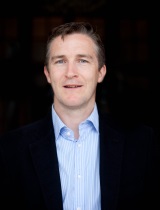 |
James Gleeson Professor James Gleeson holds the Chair in Industrial and Applied Mathematics at the University of Limerick. He is a graduate of University College Dublin in Mathematical Sciences and Mathematical Physics and received his PhD in Applied Mathematics from Caltech in 1999. He is an Associate Editor of the Journal of Complex Networks and a member of the editorial board of Physical Review E. As co-director of MACSI, the Mathematics Applications Consortium for Science and Industry, he leads research into applications of mathematics to real-world problems with significant economic and social impact. |
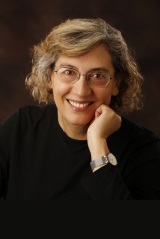 |
Caterina Scoglio Caterina M. Scoglio is the Paslay chair professor of Electrical and Computer Engineering at Kansas State University. Her main research interests are in the field of network science and engineering with applications to spreading processes. Caterina received the Dr. Eng. degree from the "Sapienza" Rome University, Italy, in 1987. Before joining Kansas State University, she worked at the Fondazione Ugo Bordoni from 1987 to 2000, and at the Georgia Institute of Technology from 2000 to 2005. Caterina is also an affiliated faculty member at the Institute of Computational Comparative Medicine (ICCM) at Kansas State University. |
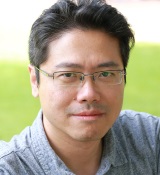 |
Xiang Li Xiang Li is a Distinguished Professor and the Founding Director of the Research Center of Smart Networks and Systems at Fudan University, China. He received the B.S. and Ph.D. degrees in control theory and control engineering from Nankai University, Tianjin, China in 1997 and 2002, respectively. He recently received several national awards and honors like the National Natural Science Award (2015), the National Science Fund for Distinguished Young Scholarship of China (2014) and the Creative Leadership of Science and Technology of MOE, China (2016). His recent research interests cover epidemics and control of human social dynamics, temporal networks, brain functional dynamics, multi-drone autonomous flocking, and etc. |
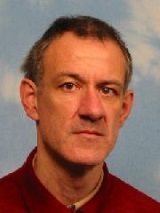 |
Thomas Mountford obtained his PhD at UC Berkeley in 1986 and since 2001 he has been a Full Professor of Mathematics at the EPFL in Lausanne, Switzerland. He has done research in a large variety of topics, notably in the fields of Interacting Particle Systems and Percolation Theory. |
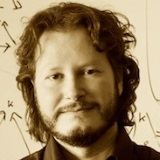 |
Diego Garlaschelli Diego Garlaschelli is Associate Professor at the Lorentz Institute for Theoretical Physics, Leiden University, and Associate Fellow of the Saïd Business School, Oxford University. Since 2011, he leads a research group with strongly interdisciplinary interests, including network theory, economic complexity, social dynamics, statistical physics and graph theory. He teaches courses in Complex Networks and Econophysics at the Faculty of Science in Leiden. He holds a master degree in theoretical physics from the University of Rome III (2001), a PhD in Physics from the University of Siena (2005), and held postdoctoral positions at the Australian National University in Canberra (Australia), the University of Siena (Italy), the University of Oxford (UK) and the S. Anna School for Advanced Studies in Pisa (Italy). |
 |
Yamir Moreno Yamir Moreno is Research Professor and Deputy Director of the Institute for Biocomputation and Physics of Complex Systems (BIFI). He is also Professor at the Department of Theoretical Physics of the University of Zaragoza in Spain. He works on a variety of problems like nonlinear dynamical systems coupled to complex structures, transport processes and diffusion with applications in communication and technological networks, dynamics of virus and rumors propagation, game theory, systems biology and the study of more complex and realistic scenarios for the modeling of infectious diseases. |
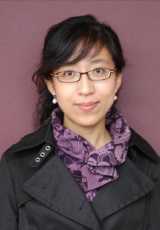 |
Huijuan Wang is currently an assistant professor in the Multimedia Computing Group at Delft University of Technology. She received the M.Sc. degree and Ph.D. degree in Electrical Engineering from the Delft University of Technology in 2005 and 2009, respectively. She has been a visiting scientist in the Department of Physics at Boston University since 2011 and in the Department of Electrical Engineering at Stanford University in 2015. Her main research areas are dynamic processes e.g. viral spreading, opinion formation and cascading failures on multi-layer interconnected networks, network optimization and recommender systems. |
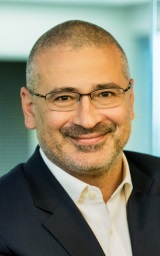 |
Alessandro Vespignani Alessandro Vespignani is the Sternberg Family Distinguished University professor at Northeastern University, with interdisciplinary appointments in the College of Computer and Information Science, College of Science, and the Bouvé College of Health Sciences. He is the Director of the Network Science Institute and lead the Laboratory for the Modeling of Biological and Socio-technical Systems. Vespignani’s research focuses on the interdisciplinary application of statistical and numerical simulation methods in the study of biological, social and technological networks. The research focuses on modeling spatial spread of epidemics, including realistic and data-driven computational modeling of emerging infectious diseases; resilience of complex networks; and collective behavior of techno-social systems. |
 |
Eric Cator is full professor of Applied Stochastics at the Radboud University in Nijmegen, the Netherlands. He obtained his PhD at Utrecht University in 1997 in functional analysis, after which he switched to mathematical statistics and probability. In the last few years he also started working on the SIS process on finite graphs. |
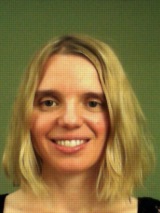 |
Malwina Luczak is a professor in applied probability at Queen Mary University of London. She obtained her BA 1997 and her DPhil 2001 from the University of Oxford. She is also a holder of the prestigious EPSRC Leadership Fellowship. |


